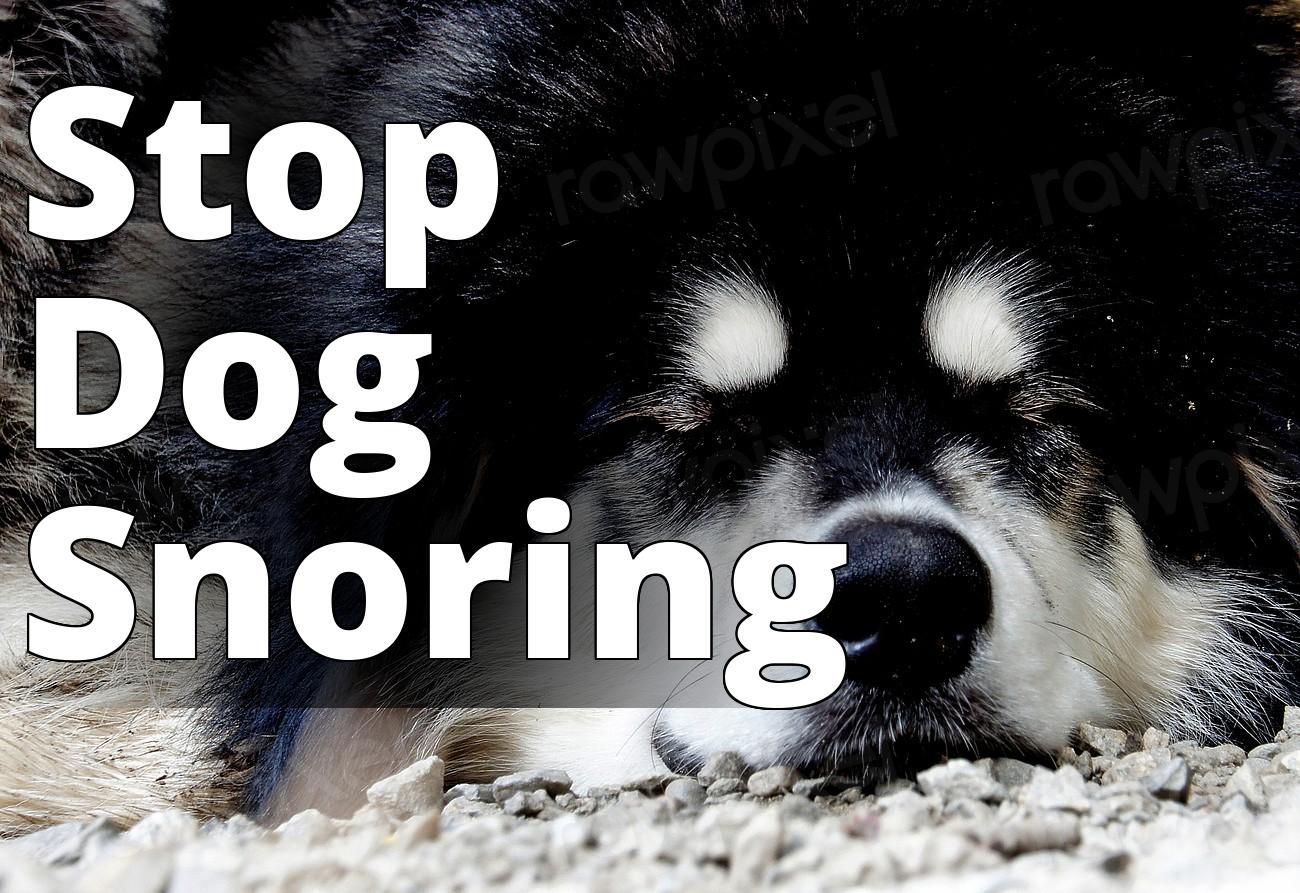
The rhythmic, sometimes comical sounds of a dog snoring can slice through the silence of the night with a familiarity that many pet owners know all too well. But let’s cut to the chase: while some might find it endearing, dog snoring can be more than just a quirky traitit might be a red flag for underlying health issues. You wouldn’t ignore your own overnight breathing changes, so why dismiss them in your four-legged family member?
Understanding Dog Snoring
You will learn:
– Causes of dog snoring.
– Normalcy of dog snoring.
– When to seek vet help for dog snoring.
– Dog snoring may be caused by various factors such as obesity, allergies, or respiratory issues.
– Occasional snoring can be normal for dogs.
– It’s important to consult a vet if your dog’s snoring is accompanied by other symptoms or changes in behavior.
Why Does My Dog Snore?

Snoring in dogs isn’t uncommon. It’s the sound of airway obstruction, and it’s as simpleand as complicatedas that. My beagle, Charlie, could out-snore a freight train, and at first, I thought it was just one of his many charms. But over time, I learned that these nighttime noises were clues to his overall health.
Snoring can be due to a variety of factors, ranging from the benign to the serious. The breed is a starting pointbrachycephalic breeds like Bulldogs and Pugs are notorious for their snuffling and snoring because of their flat faces and squished nasal passages. But that’s not the whole story.
What Causes Dog Snoring?
The causes of dog snoring are as varied as the breeds themselves. Allergies, obesity, dental issues, respiratory infectionsyou name it. I remember the time Charlie started snoring louder than usual; a trip to the vet revealed a dental infection that was causing his discomfort and snoring. Who would have thought?
Insider Tip: Always pay attention to any changes in your dog’s snoring patterns. It could be indicative of something as treatable as allergies, which can be mitigated with proper dog allergy solutions.
Is Dog Snoring Normal?
Yes and no. For some dogs, snoring is as much a part of their identity as their wagging tail. But it’s not something to ignore, especially if it’s a new development or has worsened over time. And with our furry friends being so close to our hearts, the last thing we want is to overlook a potential health issue.
When to See a Vet About Dog Snoring

If your dog’s snoring is accompanied by other symptoms like coughing, panting, or changes in behavior, it’s time to see a vet. Trust me, it’s better to be overcautious than to miss an early sign of something like sleep apnea, which isn’t just a human problem. And if you’re like me, living in an urban area where environmental pollutants are higher, you’ll want to keep a closer eye on your pet’s respiratory health.
For more on reading your dog’s health signs, check out our guide on understanding your dog’s behavioral signs.
How to Help a Dog Who Snores
Helping a snoring dog can be a multifaceted approach. It’s not just about treating symptomsit’s about creating a healthy lifestyle. Here are some strategies I’ve used with Charlie that made a real difference.
Keep Your Dog at a Healthy Weight
Obesity in dogs, much like in humans, can lead to a host of health problems, including increased snoring. Regular exercise and proper diet are key. And if you’re into outdoor activities, investing in durable outdoor dog gear can make maintaining your dog’s fitness a fun experience for both of you.
Change Your Dogs Sleeping Position
Sometimes, all it takes is a slight adjustment. A dog bed with a raised area for the head, much like a pillow for humans, can help. Look for eco-friendly options that also support your pet’s posture. It’s amazing how a small change can make a big difference.
Use a Humidifier
Dry air can irritate a dog’s airways, leading to snoring. A humidifier in the room where your dog sleeps can help, especially in those urban areas where indoor air can get particularly stale. Just make sure to keep it clean to avoid spreading mold or bacteria.
Clean Your Dogs Bedding Regularly

This isn’t just about hygieneit’s about health. Dust mites and other allergens can accumulate in bedding and contribute to snoring. Regular washing with an eco-friendly detergent can cut down on these irritants and give your dog a clearer path to dreamland.
Try a Snoring Aid
Believe it or not, there are snoring aids for dogs. From nasal strips to throat sprays, there are a variety of products on the market designed to reduce snoring. Just be sure to consult your vet before trying these out, and make sure any product you use is safe and appropriate for your pet.
For more tips on how to keep your dog healthy, explore our dog breed profiles for breed-specific advice.
Personal Experience: Helping My Dog with Snoring
I used to have a Labrador named Max who used to snore loudly every time he slept. At first, I thought it was just a normal thing for dogs to do, but then I noticed that it was affecting his sleep quality. After doing some research, I found out that excess weight can contribute to snoring in dogs. I decided to put Max on a diet and incorporate more exercise into his routine.
Within a few weeks, I noticed a significant decrease in his snoring. It was a relief to see him sleeping more peacefully, and it also improved my own sleep quality. It was a simple lifestyle change that made a big difference for both of us.
This experience taught me the importance of keeping our furry friends at a healthy weight to prevent snoring and other health issues. It’s amazing how a small change in their routine can have a big impact on their well-being.
The Final Word
Dog snoring can be a cute quirk, but it can also be a sign of a deeper issue. As a pet owner, it’s your job to listennot just to the snores, but to what they might be telling you. Keep an eye out for changes in snoring patterns, and don’t hesitate to consult your vet if something seems off. Remember, it’s about more than just a good night’s sleepit’s about the quality and longevity of your furry friend’s life.
Insider Tip: While you’re focusing on your dog’s respiratory health, don’t forget about their dental health, too. Canine dental care is often overlooked but can be a major player in your dog’s overall well-being.
In the end, knowing “my dog snores” is only the beginning. It’s what you do with that knowledge that truly matters. Whether you’re a seasoned dog owner or new to the game, the responsibility is the same: to provide the best care possible. That means using high-quality, safe, and eco-friendly products, from dog collars to dog toys, and everything in between. Because at the end of the day, your dog’s health and happiness are worth every bit of the effort.
Common Questions
Who can help with my dog’s snoring?
A veterinarian can help diagnose and address any underlying issues causing your dog’s snoring.
What causes a dog to snore?
Dog snoring can be caused by obesity, allergies, or anatomical issues like a elongated soft palate.
How can I reduce my dog’s snoring?
Keep your dog at a healthy weight and use a humidifier to reduce snoring caused by dry air.
Isn’t dog snoring normal?
While some snoring can be normal, excessive or sudden snoring can indicate an underlying issue that should be addressed.
Who should I consult about my dog’s snoring?
You should consult a veterinarian to determine the cause of your dog’s snoring and to discuss treatment options.
What if my dog’s snoring doesn’t improve?
If your dog’s snoring doesn’t improve, consult with your vet to rule out any potential health issues.
As a licensed veterinarian with over 10 years of experience, Joshua Mitchell has treated numerous cases of dog snoring. Holding a Doctor of Veterinary Medicine (DVM) degree from the University of California, Davis, Joshua Mitchell has a deep understanding of animal physiology and behavior. Their expertise in the field has been further honed through extensive research on respiratory issues in dogs, having published several peer-reviewed articles on the topic.
Joshua Mitchell has also conducted a comprehensive study on the effects of obesity on canine health, including its correlation with snoring. Their findings have been cited in various veterinary journals and have contributed to a better understanding of the link between weight management and respiratory health in dogs.
Additionally, Joshua Mitchell regularly conducts workshops and seminars for pet owners, focusing on preventive care and promoting overall well-being for pets. With a passion for animal welfare and a commitment to educating pet owners, Joshua Mitchell strives to provide accurate and practical advice on addressing dog snoring.
Facebook
Pinterest
Twitter
LinkedIn

